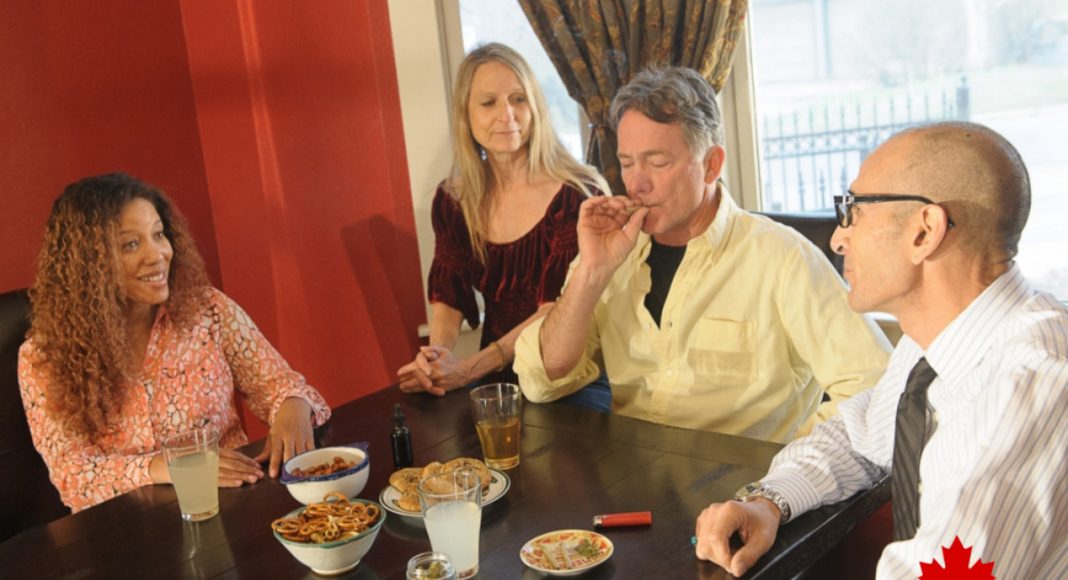Today, marijuana sales will officially begin nationwide in Canada, making it the second country in the world — following Uruguay — with a federally legal adult-use marijuana industry. Each Canadian province has developed its own system for how marijuana will be sold to adults, which will include government stores, private retailers, online government sales with delivery, or a mix of all of these approaches.
Meanwhile, in the U.S., nine states have legalized marijuana for adult use (although sales are allowed in only eight of them) and 30 states have comprehensive medical marijuana laws. Two more adult-use states and two more medical states may come on board on Election Day, but all of this progress exists under the cloud of federal illegality.
Businesses in the U.S. have to contend with a myriad of problems caused by federal prohibition. Even the Marijuana Policy Project (MPP) — a nonprofit organization that works to end marijuana prohibition — was dumped by our bank (we now have a new one) and our retirement fund briefly planned to drop us. In addition to banking challenges, U.S. cannabis businesses typically can’t accept credit cards, products can’t ship to retailers in other states, and most alarmingly, there is still the possibility of federal prosecution.
In addition to overriding federal law context, here is a comparison between the Canadian adult-use program and common features of U.S. state legalization laws:
Age: In Canada, provinces set the drinking age at either 18 or 19. The age limit is mirrored for cannabis. Meanwhile, all legalization states have set the age at 21, mirroring U.S. alcohol laws.
Edibles: For the first year, no edibles will be allowed in Canada. Initially, reports indicate only flower will be available. In contrast, every adult-use legalization law in the U.S. allows edibles and a myriad of other products, albeit with regulations. (However in Oregon during a transitional period, existing medical businesses were initially allowed to sell flower only to adult-use consumers.)
Public consumption: Every U.S. state that legalized marijuana prohibits marijuana smoking in public, although some allow for on-site consumption at specific adults-only establishments. In Canada, some provinces will allow cannabis smoking in certain locations that are open to the general public, although most or all ban it in locations that appeal to children.
Possession limit: In Canada, adult will be allowed to possess just over an ounce of cannabis (30 grams) outside the home. Possession limits for outside the home in legalization states vary from one ounce to 2.5 ounces.
Home cultivation: Canada is allowing home cultivation of four plants. All of the adult-use states but Washington allow home cultivation, although in Nevada only those living at least 25 miles away from the nearest retailer may grow their own cannabis.
Government involvement: Due to federal illegality, thus far U.S. state governments have not directly participated in selling, distributing, or growing adult-use marijuana (although two public universities in Louisiana are involved in marijuana cultivation, and Utah plans to dispense medical cannabis). In contrast, there will be government distribution systems in Canada and government stores and deliveries in some provinces.
Import/export: At this time, Canadian law does not allow the import or export of cannabis, although it does allow hemp exports. In light of federal prohibition, all state marijuana laws are set up as intrastate programs—with retailers purchasing only from product manufacturers and growers in the same state.
The Marijuana Policy Project has been at the forefront of legalization among the states as well as decriminalization for possession of cannabis. Our efforts have removed the threat of local prosecution for citizens in 21 states and the District of Columbia. But we cannot rest on yesterday. We have to continue to push today for a better tomorrow.
Last year, the NYPD was still arresting African American and Latino youth for marijuana possession at a rate 9 times greater than Caucasian youth. Currently, we continue to house hundreds of thousands of people for cannabis possession, leading to devastating collateral consequences in their lives, such as job loss or denial of parental rights. MPP plans to keep growing the number of U.S. states where marijuana is legal for adults. With sufficient funding, we believe we can more than double the number of adult-use states within just a few years.
Meanwhile, we aren’t losing sight of the need to change federal law. It’s easy to get complacent when the DEA isn’t busting down cannabis business’ doors. But recent comments from Colorado’s top federal prosecutor should remind us all that there is an urgent need to change federal law so that state-legal marijuana businesses are no longer a crime. Most critically, we still have over 500,000 marijuana-related arrests and convictions each year in the United States. Canadian jails are used for a better purpose. Visit www.mpp.org to learn more and join our mission.


